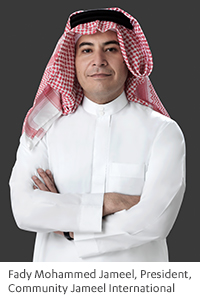J-WAFS Solutions continues to drive innovation: Agrowaste to fertilizer and safe drinking water in rural communities

The Abdul Latif Jameel World Water and Food Systems Lab (J-WAFS) is to fund two more innovative research projects that aim to address food and water challenges facing communities across the globe.
The two technologies are being commercialized by teams at the Massachusetts Institute of Technology (MIT), with support from the J-WAFS Solutions program, which aims to support breakthrough technologies to improve access to food and water.
One project is developing a low-cost, portable reactor unit that enables farmers to turn agricultural waste into an inexpensive fertilizer product. This material, when added to soils, promotes plant growth, increases crop yields, and reduces irrigation needs compared to conventional farming methods.
The second project aims to enable rural communities in developing countries to test E. coli levels in drinking water via an affordable and accessible mobile kit. The technology has already been successfully piloted in Nepal. With this latest grant, the team hopes to improve the test kit’s design and create a marketing and distribution plan to reach communities at risk of water-related diseases from unsafe drinking water.
Both these technologies aim to address issues that can be particularly relevant to communities that face food supply and water safety challenges.
According to a report released by the World Health Organization (WHO) in 2017, approximately 2.1 billion people lack access to safe, readily available water. And according to the Food and Agriculture Organization of the United Nations (UNFAO), 70% more food will be needed by 2050. Developing technologies that are accessible and relevant to the people most affected by these challenges can help reduce these statistics.
Both new technologies have the potential for high impact in the Middle East and North Africa region. The risk of E. coli, in particular, has been felt acutely in Saudi Arabia and other countries of the Gulf Cooperation Council (GCC). A 2016 paper in the Saudi Medical Journal published in participation with the GCC’s Centre for Infection Control issued an urgent call for action against antimicrobial resistance in Saudi Arabia, noting the rise of E. coli in Saudi Arabia.
| Fady Jameel, President of Community Jameel International, said: “With rising populations, climate change and urbanization, we need to start taking action now to meet the world’s future needs for food and water.
Community Jameel is proud to be a key partner of MIT in tackling some of the most pressing issues related to food and water safety and security in the Middle East and around the world.” Launched in 2014 by MIT and Community Jameel, J-WAFS Solutions grants provide one year of financial support. This is accompanied by mentorship from industry partners and additional networking and guidance, supporting project teams as they advance their technologies toward commercialization. Last year, J-WAFS announced support for other new technologies that use wood as a low-cost water filter; apply smartphone technology to detect harmful bacteria in food; and test the quality of milk via a handheld device. |
 |



 Added to press kit
Added to press kit


